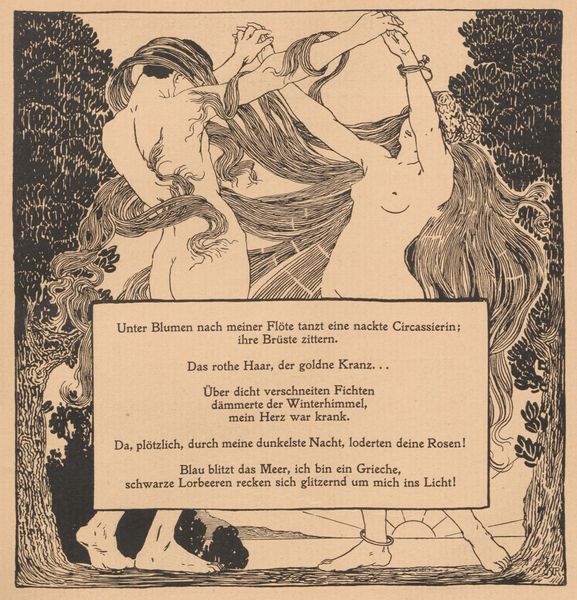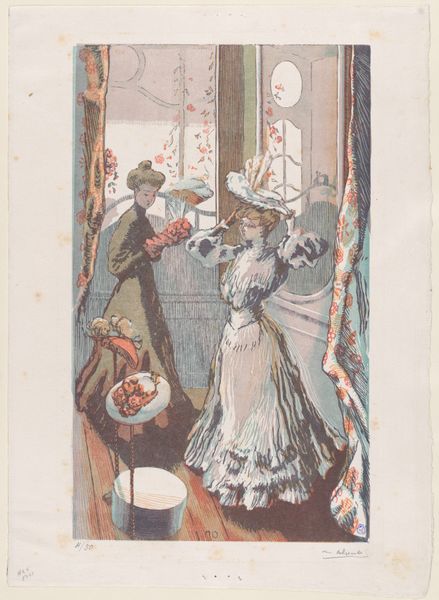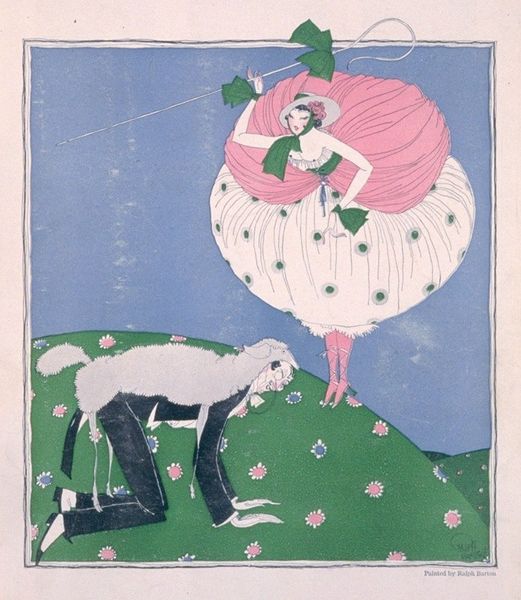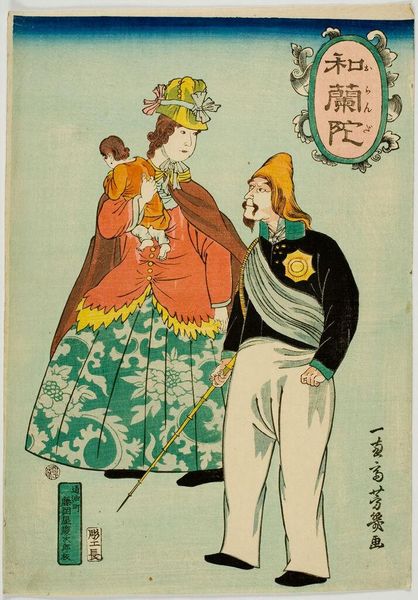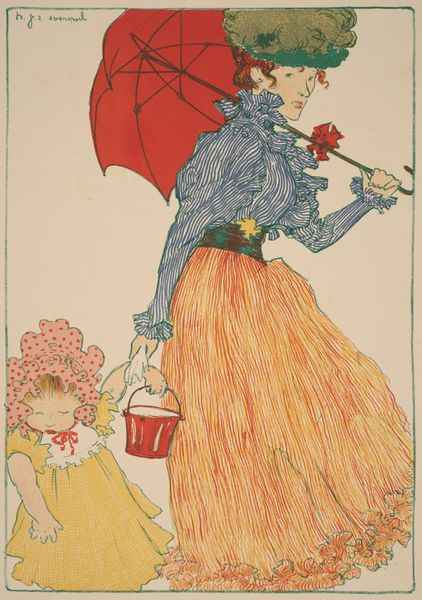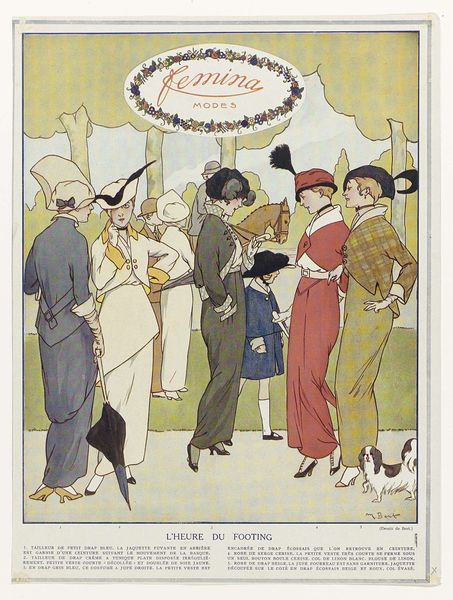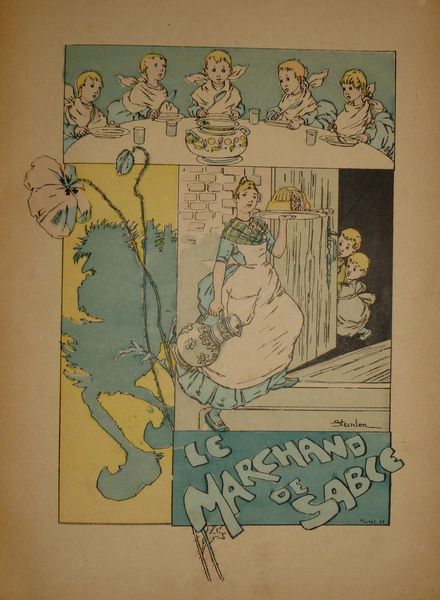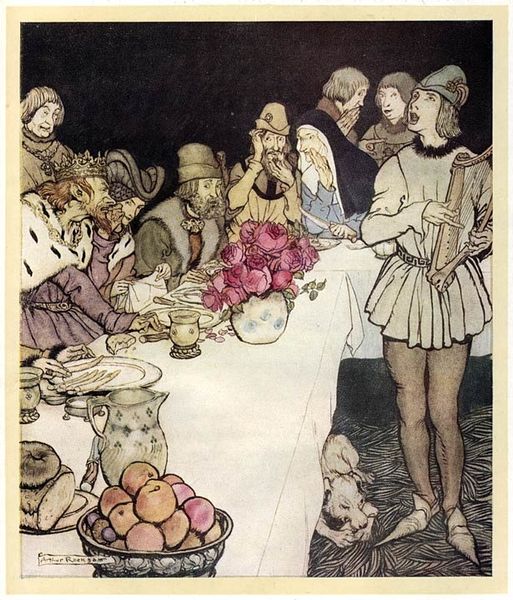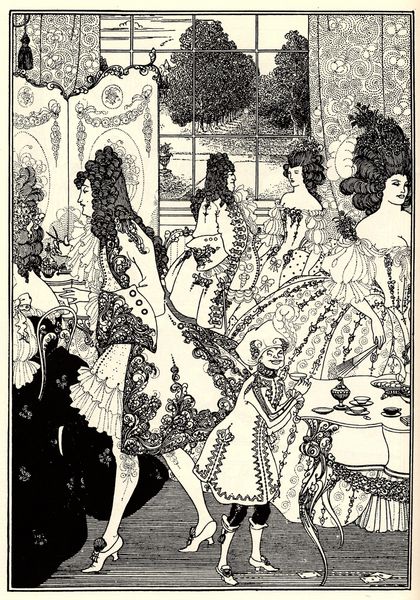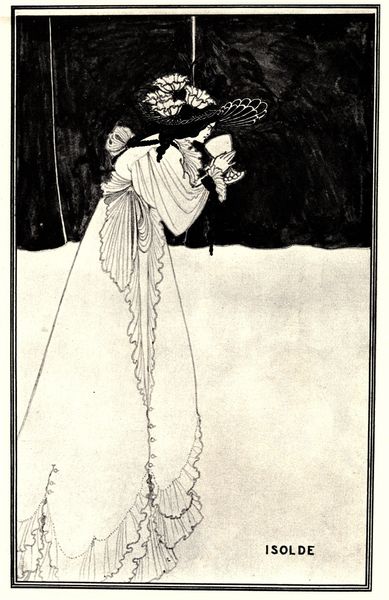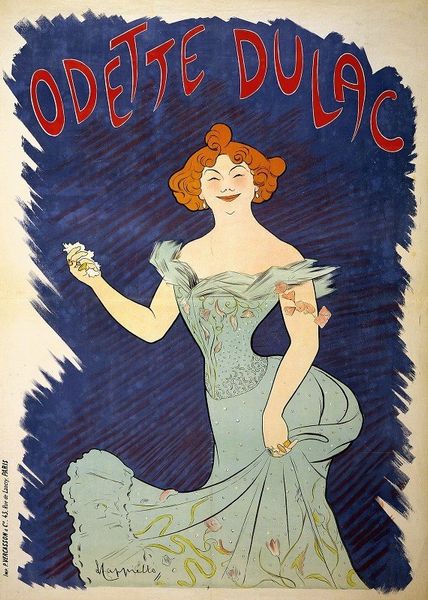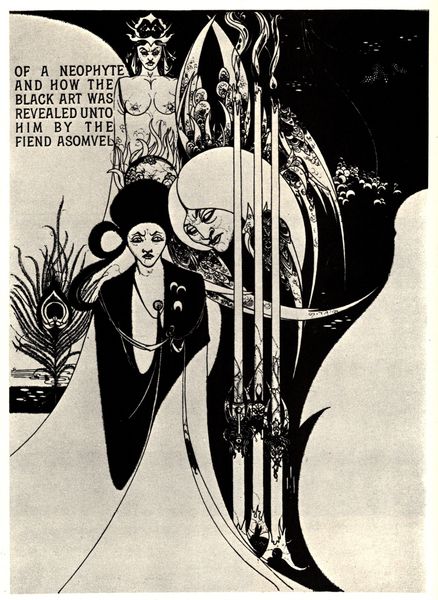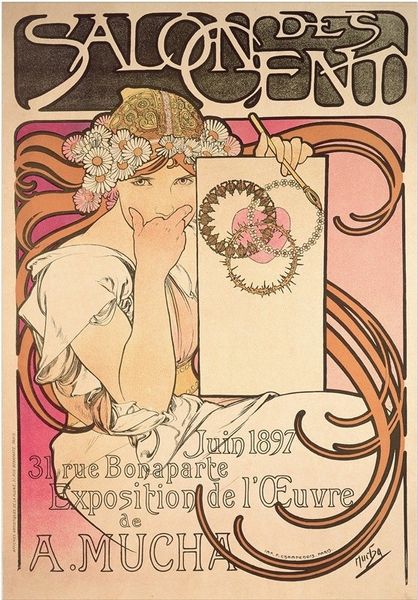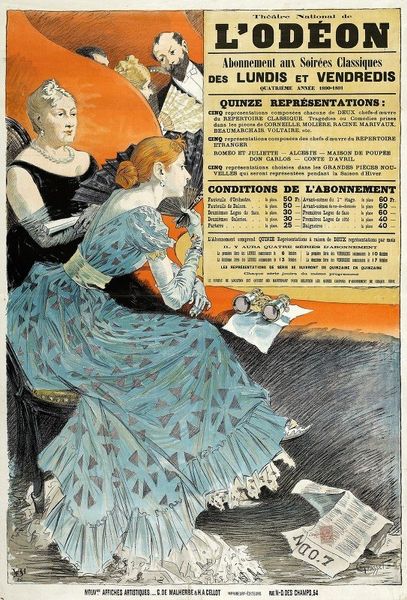
drawing, graphic-art, pen, poster
#
drawing
#
graphic-art
#
art-nouveau
#
pen drawing
#
pen work
#
pen
#
poster
Copyright: Public domain
Curator: Théophile Alexandre Steinlen's "Gavotte," created around 1889, captures the Art Nouveau spirit. The print, primarily executed in pen, presents an elegant visual experience. Editor: It’s airy, isn't it? Almost weightless. The figures seem to float on the page, and that swirling lettering mimics the dance they’re engaged in. The flowers feel equally buoyant. Curator: That’s fascinating. Steinlen's choice of using pen for a commercial poster challenges our conceptions about artistic labor and intended audience at the time. Typically we expect a certain mode of print production from that period, and I am immediately interested in what his production methods afforded. Editor: And look at the figures – they are sketched rather than rendered in detail. Their shapes are suggested by the lines and curves of their dresses and bodies. This creates an amazing feeling of lightness. But why did he use this effect? Curator: Think of what Art Nouveau was about—a rejection of industrial manufacture and embrace of craft. Steinlen produced posters, illustrations, and prints to be consumed by Parisians in newspapers, sheet music covers, etc. This particular lithograph served as sheet music to reach an emerging middle class. Editor: I agree with your analysis about its appeal. Note also the contrast: the floral foreground is more realistically rendered compared to the dancers on top of the blue backdrop. This stylistic variance highlights that visual complexity. It all directs the eye to "Gavotte" in beautiful curving text. Curator: And there are the realities of how Steinlen had to adapt. The choice of medium had much to do with access to production and a booming leisure class. It served the needs of both patron and consumer. Editor: So the piece straddles these contrasting needs: artistic experimentation on the one hand and popular consumption on the other. Curator: Indeed. "Gavotte" showcases this tension through its materiality. A commercial product born of aesthetic desires and production processes. Editor: What an insight. Seeing the piece this way allows appreciation for its delicate artistry within this framework of artistic boundaries and the business practices of the time.
Comments
No comments
Be the first to comment and join the conversation on the ultimate creative platform.
